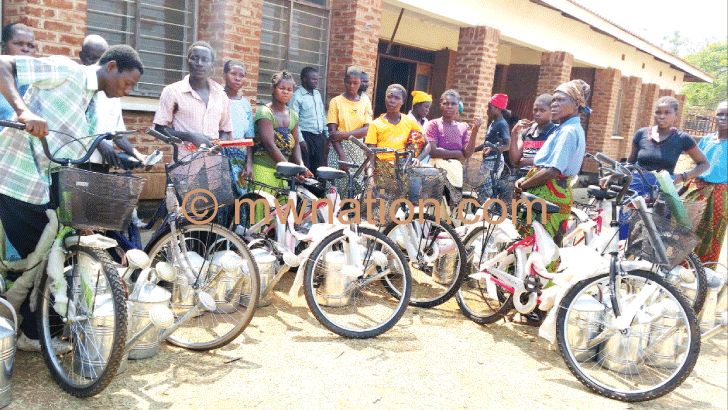Time for youths to count
Today, President Peter Mutharika is launching the National Youth Report in Lilongwe under the theme Youth Development and Empowerment: Key to Transforming Malawi Now and Beyond. EPHRAIM NYONDO writes on some issues that youths face in Malawi that need redress.
The pain of being a youth in Malawi is evident among those that do not make it to the university after they sit the Malawi School Certificate of Education (MSCE) examinations.
Ask Madalitso Manyungwi, 24, from Baka in Karonga.

He passed his MSCE at Karonga Community Day Secondary (CDSS) in 2009, but did not qualify for the University of Malawi (Unima).
Faced with the reality that his poor parents could not sponsor him to a private college, Manyungwi—like most of his peers in his situation in Karonga—was left with two options: join fishing or run a bicycle taxi. He chose none.
Instead, he borrowed some money from a relation, bought an analogue camera and started a photography business.
The business, he says, was only a stepping stone to his dream of running an information technology (IT) business at Karonga Boma.
“While a student at Karonga CDSS, it was not easy to find a spot where students could print and photocopy documents, or even use Internet. Although I failed to make it to college, I was consoled by the dream of owning such a business in future,” he says.
Therefore, Manyungwi started saving capital from his photography business towards his dream. As years passed, he started getting impatient.

His savings were failing to drive him closer to his dream, he says. Eventually, he went knocking on various doors of financial lending institutions.
“All the banks told me I don’t have the collateral required for the K300 000 that I needed to rent a shop and kick start my business,” he said, adding: “I knew about Yedef [Youth Enterprising Development Fund], but I just did not know which door to knock. I asked different people even those at the district council, but nothing chanced as nobody here had the knowledge.”
After a failed stint with commercial banks, Manyungwi did not give up. He went to credit lending institutions that provide small loans to small-scale businesses. He was turned down again because he did not have enough capital to be entrusted with the money, although he had the concept, will and passion.
Frustrated but still visionary, Manyungwi used his savings to process a passport and, eventually, migrated to South Africa. That was in 2011. For two years, he worked as a shop attendant and returned home with sets of computers, printing and photocopying machines, Internet routers and other technological gadgets.
He returned home in 2012 and opened a technological centre, known as Weje Technologies, which offers Internet, typing and printing, photocopying, laminating, designing, software installation, photography and other services.
In 2014, he opened a subsidiary centre at Karonga and this year he is opening another in Chitipa.
“Though I employ 10 people, have built two houses, I support my entire family, I still want to go back to school. I want to go to the university and study IT,” says Manyungwi.
Asked if he feels government is doing enough to help youths realise their dreams, Manyungwi does not mince words.
“Youths in Malawi-especially those that are not in cities, fail MSCE and are poor-are on their own. We do not count,” says Manyungwi.
Indeed, youths of Malawi barely count in many areas that could help them develop not just themselves but the country as whole.
Youths of Malawi-who constitute the majority of the country’s population-are confronted by many challenges in areas of education, health, employment, entrepreneurship, gender equality and women’s empowerment, human rights and HIV and Aids.
“We need a grand shift in how we treat the youth in all aspects of life. The shift needs, in the first place, to be clear on policy issues on what we want our youths to be,” says Blessings Chinsinga, professor of development studies at Unima’s Chancellor College.
Currently, Malawi has embarked on the process of reviewing the Malawi Growth and Development Strategy (MDGS) II to set the pace for the next national development plan.
However, according to United Nation Population Fund (UNFPA), while MGDS I did not clearly show government’s direction on youth development, MGDS II outlines child development, youth development and empowerment as one of the nine development priorities.
In fact, MDGS II identifies youth as a key group-energetic, industrious, willing to learn and ready to adopt innovation and contribute to sustainable development. The National Youth Policy launched in 2013 has guided action on youth development over the last two years.
The pinnacle of the policy is youth empowerment to ensure their ability to deal with the social, cultural, economic and political challenges they encounter every day, reads the UNFPA document.
This is why government-through the Ministry of Labour, Youth and Manpower Development, in collaboration with the National Youth Council and with the support of the UN system in Malawi-embarked on countrywide youth consultations on Malawi’s development process.
Experts note the exercise was an opportunity to include the voice of the youth in the process of determining the development priorities for the next five years.
The final stage of such consultations process is the submission of the findings and recommendations to government, today, for consideration in the planning process.
Mutharika, who is also UN Champion for Youth, is the one receiving the recommendations. The President will also launch the 2015/2016 National Youth Status Report.
“What is key to me is for government to be non-partisan when dealing with the youth. It should provide a mechanism not just of creating employment to the youths but also supporting them in entrepreneurship, both with capacity and capital,” Manyungwi says.
Perhaps, that way, life of youth after MSCE would no longer be painful. n





